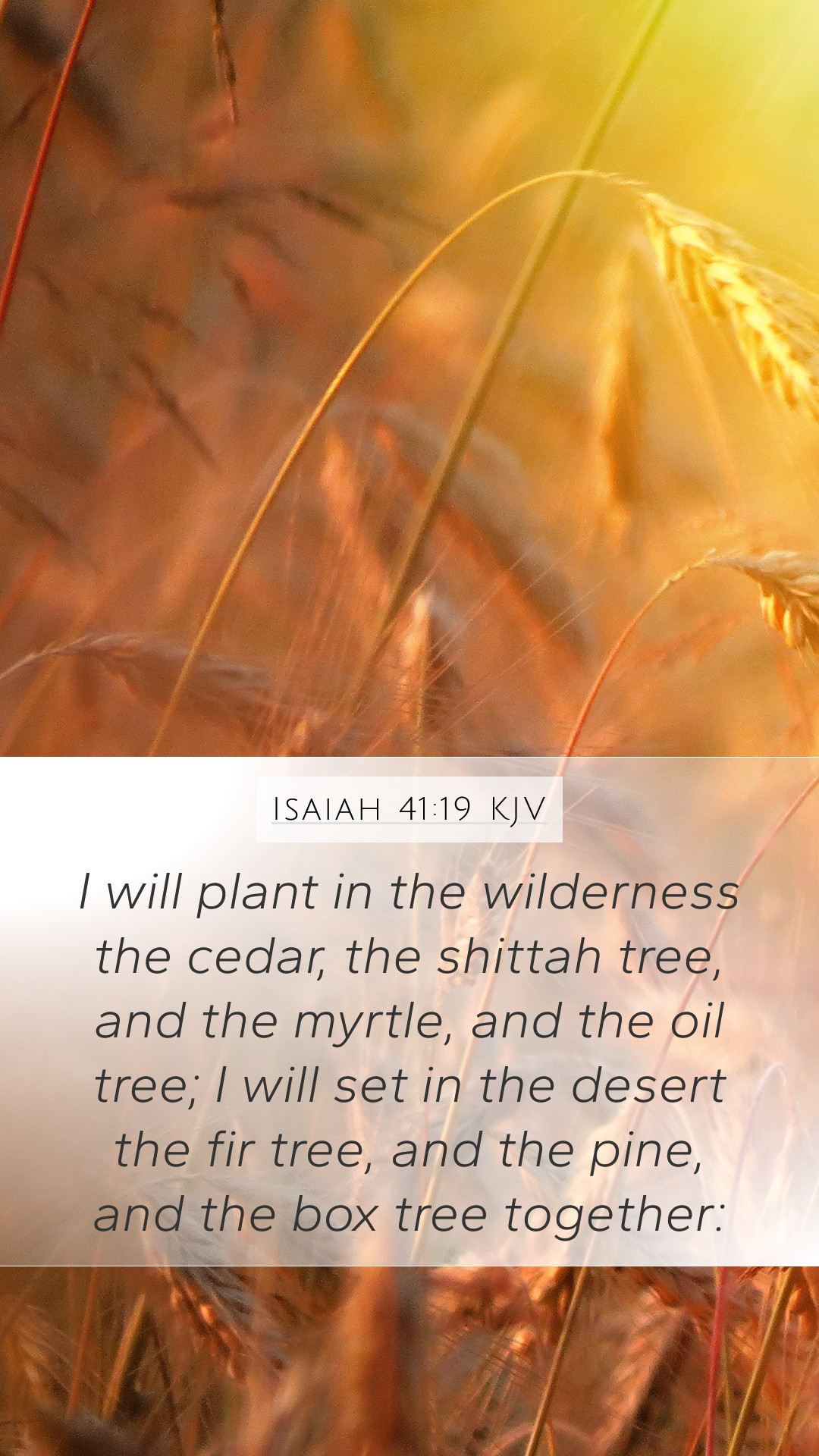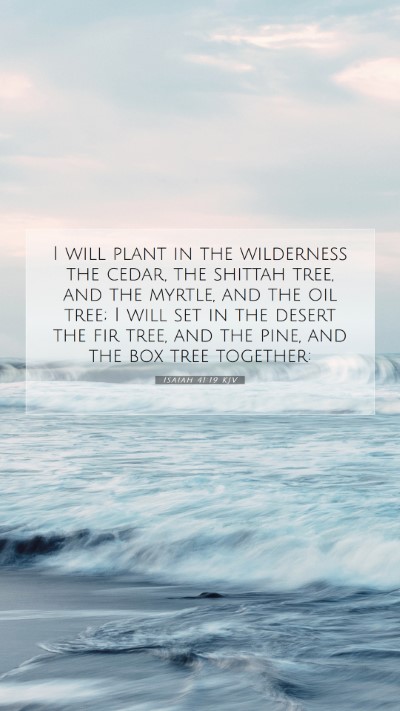Understanding Isaiah 41:19
“And I will plant in the wilderness the cedar, the acacia, the myrtle, and the oil tree; I will set in the desert the fir tree, and the pine, and the box tree together.” - Isaiah 41:19
Overview of Isaiah 41:19
This verse comes from a passage where God comforts His people and promises restoration and provision. The imagery used illustrates the transformation of desolate and barren places into fruitful and flourishing environments through God’s divine intervention.
Commentary Insights
- Matthew Henry's Commentary: Henry emphasizes that God is capable of bringing life and beauty even to the most unwelcoming spaces. The mention of various trees symbolizes the prosperity and abundance that God will shower upon His people.
- Albert Barnes' Notes: Barnes focuses on the idea that the wilderness, which is often seen as a place of hopelessness, will be turned into a place of abundance by God's hand. This serves as a reminder of God’s omnipotence and His ability to provide hope in seemingly hopeless situations.
- Adam Clarke's Commentary: Clarke expounds on the specific types of trees mentioned, noting their various uses and significance. Each tree represents different blessings and resources that God will provide, highlighting His care and foresight.
Meaning of the Verse
This verse conveys the message that God will bring forth life and growth in places where there is none. It signifies a promise of restoration, suggesting that spiritual, emotional, and physical renewal can occur, even in adversity.
The act of 'planting' indicates not just creation but also intentionality. God is active in the world, cultivating environments for His people to thrive, emphasizing His role as a sustainer and provider.
Additional Reflections
The imagery of trees flourishing in wilderness suggests that no matter how barren one’s situation may seem, God’s capability to bring transformation is always present. This encourages believers to have faith in God's plans, trusting that renewal is possible.
Cross References
- Isaiah 35:1-2: Similar themes of wilderness blooming with flowers and joy.
- Ezekiel 36:35: A prophecy of desolated cities being inhabited and fruitful.
- Psalms 1:3: The righteous are likened to trees planted by rivers, showing stability and nourishment.
Application and Relevance
In applying this verse to daily life, believers are encouraged to look for signs of hope and renewal, even in hard times. God’s promise extends beyond the spiritual realm; it emphasizes the tangible realities of growth, provision, and the ability to thrive despite challenges.
For those involved in Bible study groups, this verse serves as a powerful reminder of God’s faithfulness and the transformative power of faith. It encourages discussions about personal experiences of God’s provision and transformation in their lives.
Further Bible Study Encouragement
For those seeking deeper insights, consider exploring the historical context of Bible verses surrounding this passage to grasp better the significance of God's promises. Employ bible study tools and resources to conduct in-depth examinations of similar prophetic literature in the Old Testament.
A deeper engagement with this verse can be facilitated through online Bible study courses, focusing on themes of restoration and hope as seen in other Bible study topics.
Conclusion
Isaiah 41:19 is a profound verse encapsulating God’s ability to bring forth life and beauty in desolate environments through divine providence. The promise of restoration profoundly encourages believers to maintain their faith, looking toward the transformation that God can bring in their lives.


